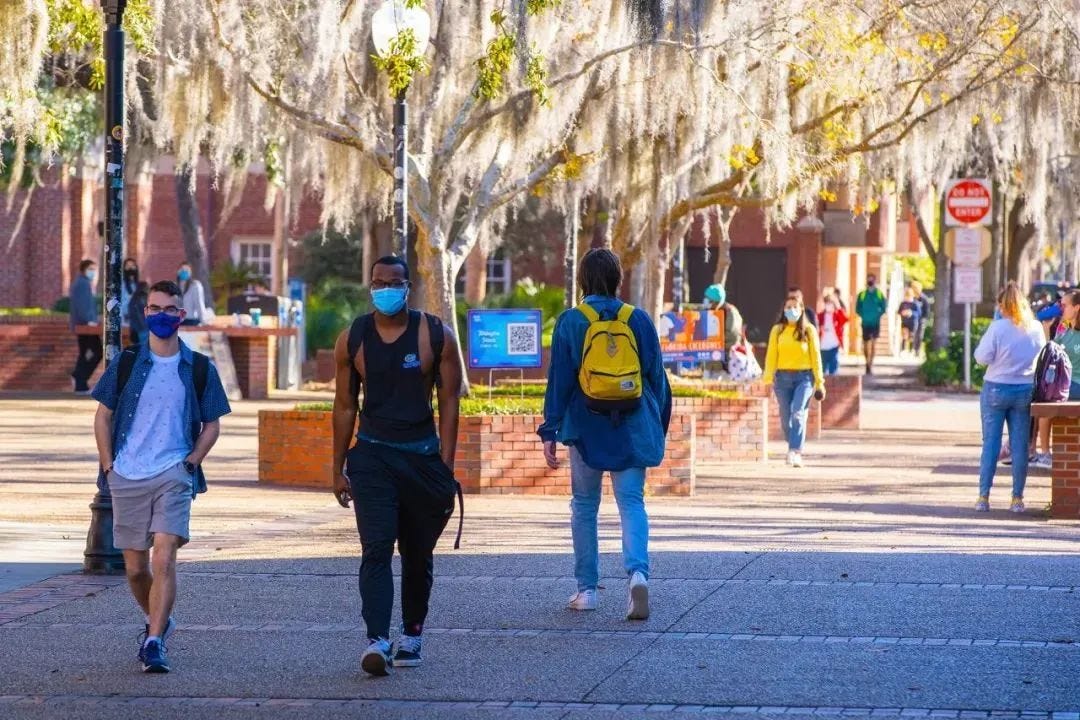Have Chinese students studying in the U.S. truly embraced American education?
Many Chinese students who come to the United States to study gradually find it difficult to discover the meaning of studying in the United States.
From an educational perspective, the current recruitment of foreign students by American universities aims to increase campus diversity, provide students with more opportunities to interact with people from around the world, and prepare them for global interactions in the future. However, under financial pressures, some schools blindly admit Chinese students to generate tuition revenue. Many of these schools may offer subpar education and lack the necessary experience to cater to international students. When Chinese students are disproportionately enrolled in such institutions, it disrupts the normal teaching order and may dilute the "American experience" for these students.
A friend of mine is in charge of recruiting Chinese students at a university, and he explicitly advises the school to control the number of Chinese students. Why?
He gave an example: In a certain school, out of 30 students in a class, 29 are Chinese. Can such a university maintain its reputation and quality in this way? Going to college in the United States is not just about listening to professors; it's even more important to interact with classmates, meet various people, and build a diverse social network. This forms an important foundation for future career development.
In today's digital age, there are plenty of online video courses by renowned professors, and online universities are popping up like mushrooms. Why do people spend so much money to come to campus? One major reason is to pursue the experience of growing together with peers.
If a class of 30 has 29 Chinese students and only 1 American student, then wouldn't it be more worthwhile for that American student to study in China instead?
The reporting by The New York Times largely confirms this point.
In one school, a class that initially had 35 students, 17 of whom were from China, saw all but three non-Chinese students drop out after a few weeks. The class essentially became a classroom for Chinese students.
The reason American students left, it is said, is that they found the classroom too quiet. American students are accustomed to classroom discussions, while Chinese students tend to rely on rote memorization. There was a mutual discomfort.
However, there are probably other reasons as well.
When Chinese students dominate, and these students have not undergone strict screening by the admissions office and their English proficiency is not up to par, professors cannot lecture in a language that the majority of the class cannot understand. This is especially challenging for professors who lack experience with foreign students.
One finance and economics professor complained, "A student doesn't understand the meaning of 'ascending,' what am I supposed to do? He got the question wrong. But I don't know if he didn't understand the content of the book or if he has a language barrier."
Professors are at a loss, and they even have to simplify their lectures and slow down their pace to accommodate, which naturally frustrates American students. Dropping the class becomes commonplace.
Recruiting Chinese students ostensibly aims for diversity, but the actual result is uniformity. It effectively gathers Chinese students in the United States to have an American professor lecture them. How is this any different from inviting a foreign teacher to lecture at a university in Beijing or Shanghai? Does studying in the United States still have meaning?
The globalization of universities is not an overnight process. Faced with the rise of China, elite universities like Harvard, Yale, and others have been preparing carefully since the 1990s. They increased the number of faculty members with China-related expertise, started admitting Chinese students, and so on. Initially, these schools admitted only one or a few undergraduate students from China each year, gradually increasing the numbers. Over the course of more than a decade, they accumulated the experience necessary to effectively accommodate the growing population of Chinese students.
Today, there are hundreds of reputable American universities. If they prepare diligently, they are fully capable of handling the challenges posed by Chinese students. Especially in regions like New York, Boston, and California, universities are already quite globalized, with a diverse talent pool and strong adaptability to change. However, some lesser-known universities in remote areas that suddenly expand their enrollment of Chinese students under financial pressure may face unintended consequences.
The reporting by The New York Times, using the University of Delaware as a core case, showed how the number of Chinese students at the university jumped from 8 in 2007 to 517 today. I showed this news article to the university official responsible for recruiting Chinese students, and he provided an interesting insight:
"You've been living in the United States for over a decade, what's your relationship with Delaware? Most of your credit card bills are sent from there. There's nothing there, except for low taxes, so credit card companies have all set up offices there. Vice President Biden is from there too."
With this comment, I recalled a late-night comedy sketch I had seen before, where a comedian portrayed Biden jokingly: "I'm from Delaware, and it's like hell there, the worst place in the world. People there haven't seen anything, they have no ambitions or hopes..." It turns out that when Biden ran for president in 2008, in order to emphasize his understanding of the struggles of ordinary people, he specifically emphasized that he was a senator representing one of the most remote and impoverished areas in the United States, inadvertently giving comedians material to work with.
All of these observations are, of course, laden with biases. In fact, Delaware has a relatively dense population, a substantial number of engineers, a decent per capita income, and proximity to Washington, D.C. The University of Delaware is also a respectable institution. However, this small state often operates in the shadow of the nation's capital and may not be as culturally renowned.
When it comes to higher education in the United States, Delaware is not a name that readily comes to mind. It does raise questions about whether this university and region can effectively handle the rapid expansion of the Chinese student population.
If a significant number of Chinese students are coming abroad through intermediary services, the service companies that offer "guaranteed admission" naturally prefer to collaborate with schools that suddenly need to admit more Chinese students due to financial pressures.
As reported by The New York Times, the provost of one university tasked an intermediary company with recruiting 250 Chinese students in China, explicitly stating that the university was facing financial difficulties and needed these Chinese students to fill budget gaps. Unfortunately, schools of this nature often lack the experience and capacity to provide quality educational services to Chinese students and may not prioritize the interests of these students.
This is a report summary compiled by EduOutlook China based on research and editing of news and data in the field of international education in China. Subscribe to us to receive a new report every day.






